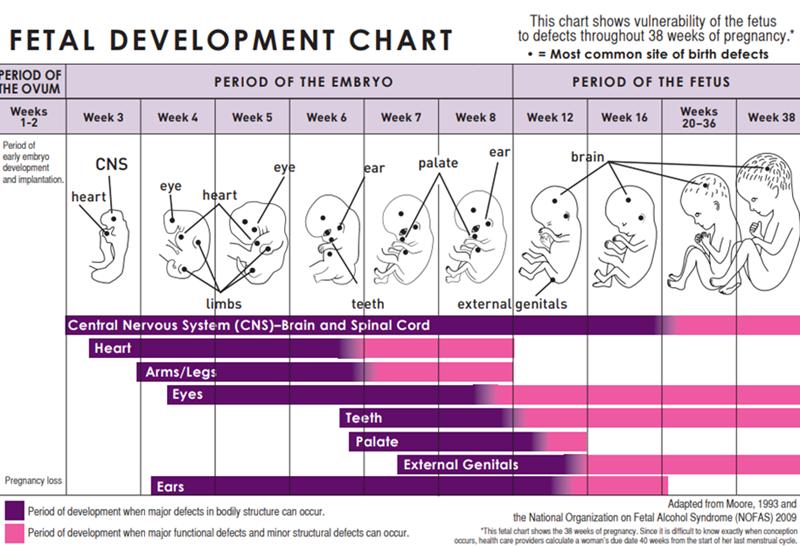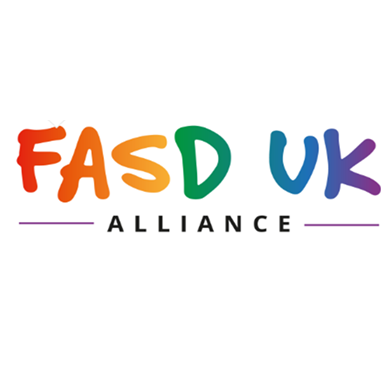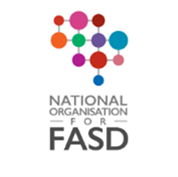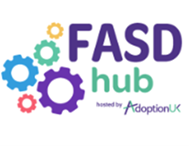Fetal Alcohol Spectrum Disorder (FASD)
FASD What is it?
Fetal Alcohol Spectrum Disorder (FASD) for young people
FASD is a life changing and life long condition. It is surprisingly common. It is caused by drinking alcohol during pregnancy.
Many women don’t realise they are pregnant during the first few weeks or didn’t plan to get pregnant.
Most people in the UK aren’t aware of the severe harm that drinking alcohol in pregnancy can cause to the unborn baby.
Studies suggest FASD affects at least 3.6% of the UK population (McCarthy et al, 2021, McQuire et al 2019). This means that 1 child in every classroom is likely to be affected by FASD.
When a pregnant woman drinks any alcohol
The alcohol in the bloodstream crosses the placenta and affects the baby.
Doctors and midwives agree that drinking alcohol in pregnancy increases the chances of miscarriage, premature birth and still birth. Even after a safe delivery, the chances of cot death maybe increased (officially known as Sudden Infant Death Syndrome or SIDS).
The unborn baby does not have a mature liver to process and detoxify alcohol. The human brain develops throughout everyday of the pregnancy. The harm caused to the baby depends on the organs and brain development happening at the time the alcohol is consumed.

If you have been drinking alcohol and have found that you are pregnant please speak to your midwife to get support and advice.
The Chief Medical Officers' guideline is that: If you are pregnant or planning a pregnancy, the safest approach is not to drink alcohol at all, to keep risks to your baby to a minimum.
Remember no alcohol no risk!
There is no safe time and no safe amount to drink during pregnancy as alcohol can harm the baby throughout.
FASD is a spectrum disorder. This means that everyone who has FASD may display the symptoms in different ways.
Less than 10% of people with FASD will have facial characteristics. This is because the face only develops in very early pregnancy.
In many cases FASD goes undiagnosed and is a hidden disability. The cause of behaviours and difficulties may be misundertood.
Individuals with FASD can have over 400 possible symptoms including behaviours that are common in ADHD and Autism. These may include:
- Physical health problems affecting any part of the body.
- Severe difficulties with movement and co-ordination
- Problems understanding instructions
- Struggle with friendships and social interactions
- Difficulties in school and work environment
- Find it challenging to concentrate and focus
- Impulsive behaviours and difficulty managing these
- Poor comprehension of social rules and expectation
- Difficulty organising themselves in daily life
- Hyperactivity
- Easily overwhelmed and over stimulated
- Poor sleep

An 18 year old person with FASD may look like anyone else of their age but their skills and abilities may vary from their friends who do not have FASD.
They may act in ways that are more typical of a child half their age. Coping with daily life and making friends can be very challenging. Individuals with FASD are often vulnerable to exploitation.
The good news
Children and adults living with FASD can live happy and productive lives if their FASD is identified early and they get the right support.
People with FASD can have many skills and talents and may excel in sport, music or the arts.
If a child needs extra help because of FASD they might be identified as having a Special Educational Need or Disability. More information is available about this support on the (Local offer LINK)
If you are concerned that a child might be impacted by FASD
Speak to your GP, Health Visitor, School SENCO or School Nurse.
Spread the word!
We all need to raise awareness of FASD and the risks of alcohol harms in pregnancy.
Useful resources
|
FASD UK Alliance – United Together for Social Change (fasd-uk.net) |
Neurodiversity support
Visit our neurodiversity support page, which provides information about local support providers that you and your child can access, the majority of which do not require your child to have a diagnosis. Support for neurodivergent children and their families (stw-healthiertogether.nhs.uk)
References
McCarthy R, Mukherjee RAS, Fleming KM, etal. Prevalence of fetal alcohol spectrum disorder in Greater Manchester, UK: An active case ascertainment study. Alcohol Clin Exp Res 2021. . doi: 10.1111/acer.14705 pmid: 34590329
McQuire C, Mukherjee R, Hurt L, etal. Screening prevalence of fetal alcohol spectrum disorders in a region of the United Kingdom: A population-based birth-cohort study. Prev Med 2019;118:344-51. doi: 10.1016/j.ypmed.2018.10.013 pmid: 30503408
Schölin, L., Mukherjee, R., Aiton, N., Blackburn, C., Brown, S., Flemming, K., Gard, P., Howlett, H., Plant, M., Price, A., Shields, J., Smith, L., Suttie, M., Zammitt, D. & Cook, P., (2021) Fetal alcohol spectrum disorders: an overview of current evidence and activities in the UK. Archives of Disease in Childhood, Archives of disease in childhood, 2021-01-13. http://dx.doi.org/10.1136/archdischild-2020- 319572








